Truth certainly would do well enough, if she were once left to shift for herself…She is not taught by laws, nor has she any need of force, to procure her entrance into the minds of men.
JOHN LOCKEWhere there is no desire, there will be no industry.
More John Locke Quotes
-






-






To love our neighbor as ourselves is such a truth for regulating human society, that by that alone one might determine all the cases in social morality.
JOHN LOCKE -





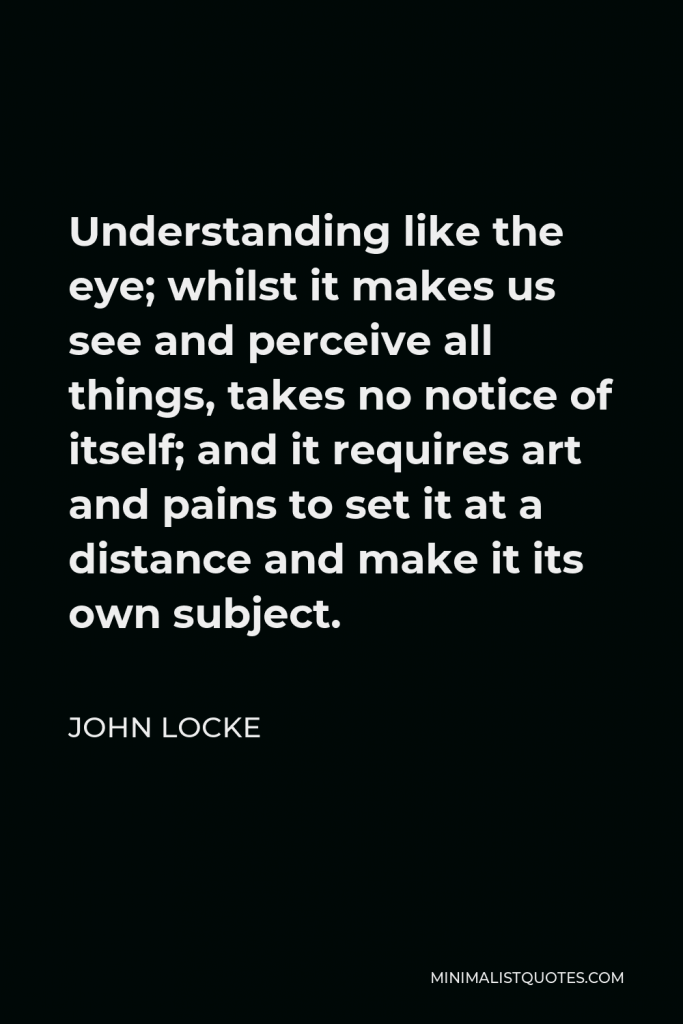

Understanding like the eye; whilst it makes us see and perceive all things, takes no notice of itself; and it requires art and pains to set it at a distance and make it its own subject.
JOHN LOCKE -






So that, in effect, religion, which should most distinguish us from beasts, and ought most peculiarly to elevate us, as rational creatures, above brutes, is that wherein men often appear most irrational, and more senseless than beasts themselves.
JOHN LOCKE -






There are a thousand ways to Wealth, but only one way to Heaven.
JOHN LOCKE -






Words, in their primary or immediate signification, stand for nothing but the ideas in the mind of him who uses them.
JOHN LOCKE -







Fortitude is the guard and support of the other virtues.
JOHN LOCKE -






There is frequently more to be learned from the unexpected questions of a child than the discourses of men.
JOHN LOCKE -






It is one thing to persuade, another to command; one thing to press with arguments, another with penalties.
JOHN LOCKE -





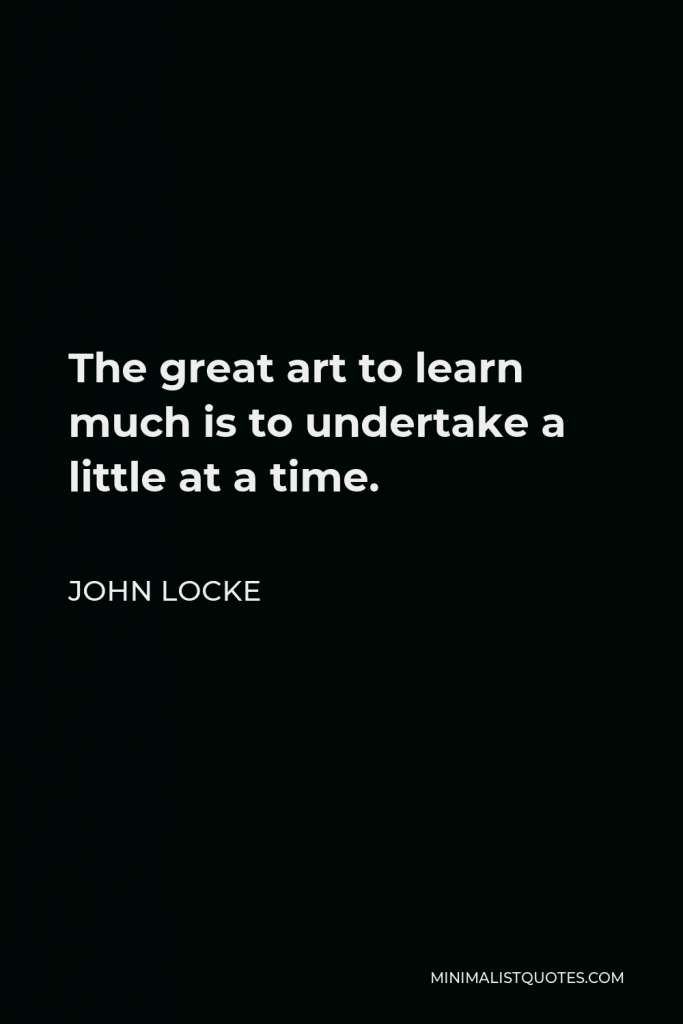

The great art to learn much is to undertake a little at a time.
JOHN LOCKE -






Don’t tell me what I can’t do!
JOHN LOCKE -





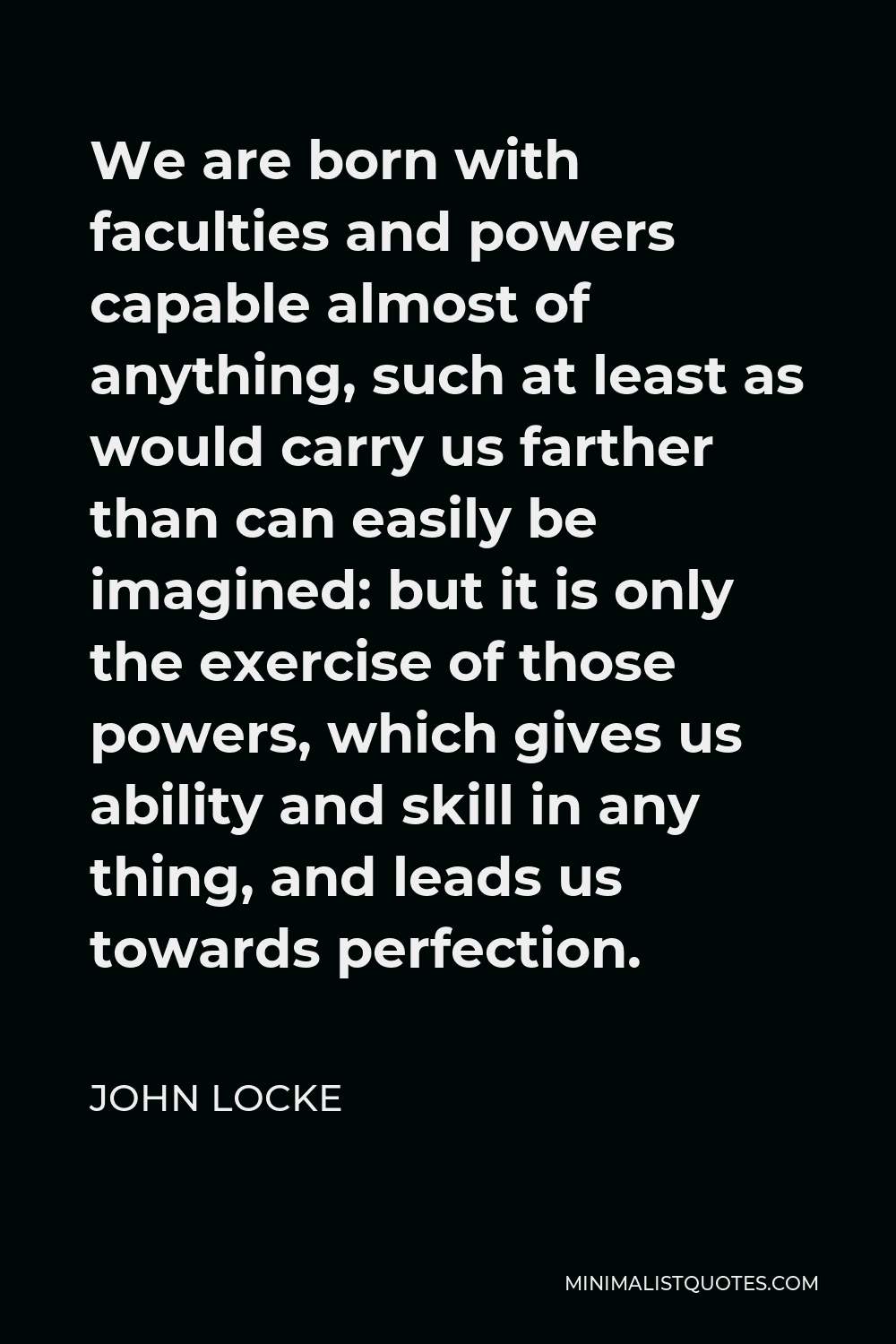
We are born with faculties and powers capable almost of anything, such at least as would carry us farther than can easily be imagined: but it is only the exercise of those powers, which gives us ability and skill in any thing, and leads us towards perfection.
JOHN LOCKE -





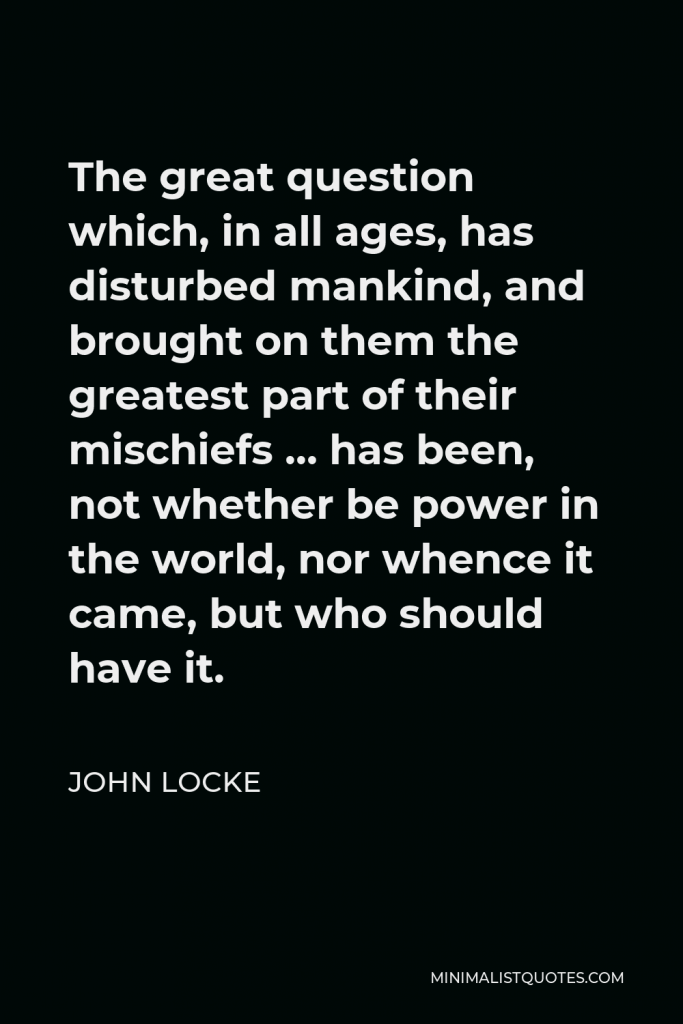

The great question which, in all ages, has disturbed mankind, and brought on them the greatest part of their mischiefs … has been, not whether be power in the world, nor whence it came, but who should have it.
JOHN LOCKE -





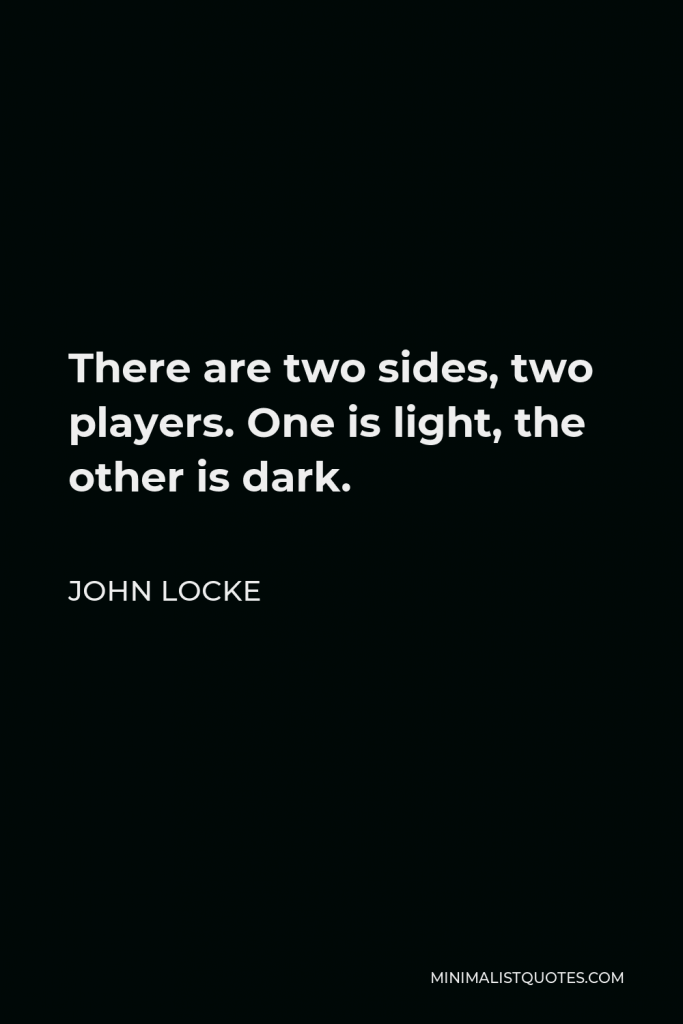

There are two sides, two players. One is light, the other is dark.
JOHN LOCKE -







I have no reason to suppose that he, who would take away my Liberty, would not when he had me in his Power, take away everything else.
JOHN LOCKE -






A king is a mortal god on earth, unto whom the living God hath lent his own name as a great honour; but withal told him, he should die like a man, lest he should be proud, and flatter himself that God hath with his name imparted unto him his nature also.
JOHN LOCKE







